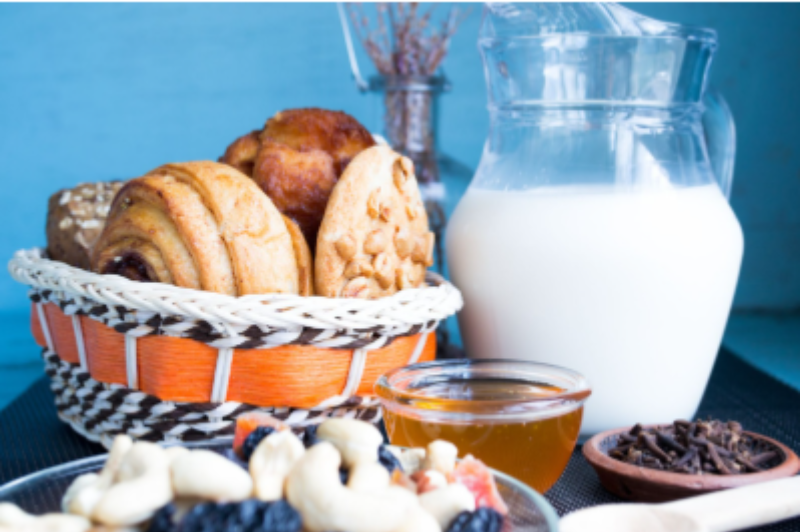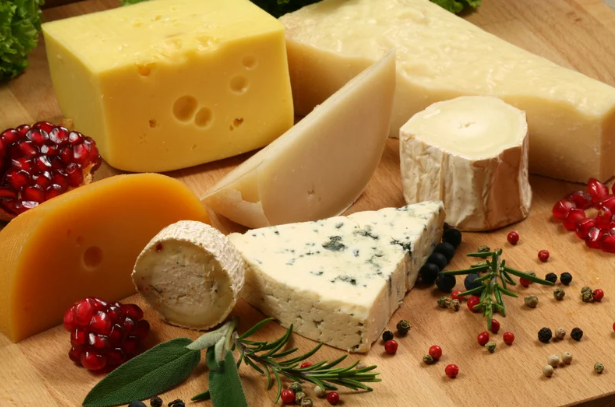
Eating Well During Cancer Treatment: Foods & Nutrition Tips
Why Should You Eat Well During Cancer Treatment?
Eating well during cancer treatment can help you to keep up your strength, prevent body tissues from breaking down, and rebuild tissues and blood cells.
When you are unable to eat enough food or the right kind of food, your body uses stored nutrients as a source of energy. As a result, your natural defenses would be weaker and your body cannot fight infections which are often a risk to cancer patients.
Patients who eat well are able to cope better with the side effects of treatment and may be able to handle a higher dose of certain treatments. However, there is no evidence to show that any kind of diet or food can neither cure nor prevent it from recurring.
What Kinds of Food & Nutrition Do I Need?
A diet that could keep your body strong will include the following food groups:
-
Carbohydrate - Carbohydrate food such as bread, rice, noodles, pasta and cereals. It is a good source of energy which the body needs to function well.
-
Protein - Meat, fish, poultry, eggs, milk, legumes, soya bean products, yoghurt and cheese will provide you with protein as well as vitamins and minerals that are important to rebuild tissues, promote wound healing and fight infection.
-
Fruit & Vegetable - Fruits and vegetables provide a good source of vitamin C and minerals that help to build muscle protein and fight against infection/ boost up your immune system.
-
Oils - All cooking oils, and spreads such as margarine and butter provide good sources of fat- soluble vitamins that are important for cell membrane function as well as energy.
How Cancer Treatment Can Affect Eating & Nutrition
Surgery increases the need for nutrition because it puts stress on the body. Before surgery, a high- protein, high- calorie diet may be prescribed if you are underweight or losing weight. After surgery, you may not resume normal eating patterns or you may receive nutrients through a tube in the nose or by having a full liquid diet temporarily.
Managing Side-effects of Treatment through Diet
| Side Effect |
Dietary Tips |
| Changes in Taste |
- Rinse your mouth with tea, ginger ale, salted water, or baking soda water before eating.
- Use plastic utensils if you experience a metallic taste.
- Chew candy, mints, or gum to remove lingering unpleasant tastes.
- Season food with lemon, vinegar, herbs, or pickled foods (avoid if you have mouth sores).
- Serve foods cold or at room temperature to reduce strong tastes.
- Eat frozen fruits like sorbet, melon, oranges, grapes, and watermelon.
|
| Difficulty Swallowing |
- Eat soft, liquid foods and thick fluids instead of thin liquids.
- Try thickening agents like tapioca, flour, cornstarch, pureed vegetables, and instant potatoes.
- Choose soft or pureed foods like yogurt, soft cheese, minced meat, mashed potatoes, and thick soups.
- Add syrups, honey, butter, or margarine to increase calorie intake.
- Inform your doctor if you experience coughing or choking while eating.
|
Sore/Irritated Mouth
or Throat |
- Eat soft, bland, lukewarm, or cold foods.
- Avoid acidic, spicy, fried, or salty foods.
- Stay away from irritating spices like chili powder, pepper, curry, and vinegar.
- Eat creamy, soft foods such as mashed vegetables, eggs, milkshakes, ice cream, and liquid supplements.
- Blend and moisten dry foods.
|
| Diarrhea |
- Drink plenty of clear, non-carbonated liquids.
- Consume room-temperature liquids for better tolerance.
- Eat small, frequent meals and snacks.
- Avoid greasy, fried, spicy, or very sweet foods.
- Limit milk or dairy to 2 cups a day.
- Follow a fiber-restricted diet and avoid gas-producing vegetables and chewing gum.
- Consume salty foods like soup, sports drinks, and crackers.
- Drink at least 1 cup of liquid after each loose bowel movement.
|
| Dry Mouth or Thick Saliva |
- Drink 8 to 12 cups of liquid daily and carry a water bottle when out.
- Take small bites and chew food completely.
- Eat soft, moist foods such as blenderized fruits and vegetables, soft-cooked chicken, and fish.
- Moisten foods with soup, sauce, gravy, or cream.
- Maintain good oral hygiene with a soft-bristle toothbrush and regular rinsing.
- Avoid alcohol-containing mouthwashes, acidic drinks, and caffeine.
- Use a cool mist humidifier at night to keep air moist.
|
| Nausea and Vomiting |
- Eat 6 to 8 small meals daily instead of 3 large meals.
- Start the day with dry foods like crackers, toast, or cereal.
- Avoid strong-smelling foods; opt for mild, easy-to-digest options.
- Drink at least 8 cups of liquid daily, sipping 30–60 minutes after meals.
- Avoid overly sweet, greasy, fried, or spicy foods.
- Eat in a well-ventilated space or cook outdoors to minimize odors.
|
Radiotherapy
As Radiotherapy damages cancer cells, it may also damage healthy cells and other healthy parts of the body. The effect depends on the area of the body being treated.
| Area of body being treated |
Nutrition-related common side effects |
-
Tongue, nasal cavity, pharynx
-
Lung, esophagus, breast
-
Large or small intestine, prostate, cervix, uterus, rectum, pancreas
|
-
Sore mouth, difficulty or pain with swallowing, change in taste or loss of taste, sore throat, dry mouth, thick saliva
-
Difficulty in swallowing, heartburn
-
Loss of appetite, nausea, vomiting, diarrhea, gas, bloating, difficulty tolerating milk products
|
Chemotherapy
As Chemotherapy destroys cancer cells, it may also harm parts of the body. The side effects include nausea and vomiting, loss of appetite, diarrhea, constipation, sore mouth or throat, weight loss, and change in the taste of food.
Improving Your Nutrition with Eating Well
There are many ways to improve your nutrition. Table 1 provides a list of nutritious snacks you may want to try. Table 2 shows ways to increase calories. Table 3 offers ideas to increase protein in your diet.
 Table 1 Table 1
|
Snacks
- Snacking is important when you are unable to eat well. Keep snacks available at all times. Include one to two snacks a day in between meal times to boost your calories and protein intake.
|
- Bread and dry biscuit
- Puddings and custards
- Milk or cocoa drink
- Toasted bread with cheese
- Hard- boiled or scrambled egg
- Nuts and seeds
- Steamed kueh/bun sandwiches
|
 Table 2 Table 2 |
High Calories Foods
- When preparing food, try to add the items listed below into your meals such as a sandwich with cheese or margarine, or add whipped cream, milk powder or sugar in a beverage.
|
- Salad dressings & mayonnaise
- Sugar
- Ice cream,
- Jam or marmalade
- Peanut butter paste
- Avocado
|
 Table 3 Table 3 |
Proteins
- Protein is important for wound healing and rebuilds muscle. Food sources high in protein are listed below.
|
Cheese
Melt on sandwiches, bread, omelette, muffins, hamburgers, eggs - Grate and add to soup, sauce, casserole, vegetables.
Milk or powdered milk
- Use milk in beverages
- Use in preparing hot cereal, pudding, gravy or soups
Commercial nutritional supplement
- Drinks on its own, preferably 1-3 times a day depending on appetite
Meat & Fish
- Steamed fish, minced beef or meat.
- Add chopped, cooked meat or fish to soup, porridge or noodle
Eggs
- Add chopped, hard boiled eggs to soups, dishes and sandwiches. (Avoid raw eggs, it may contain harmful bacteria. Because your treatment may make you susceptible to infection. Make sure all eggs are well cooked.)
Beans & Legumes
- Spread on bread, crackers or pancakes.
- Cook and use dried peas, beans and bean curd (tofu) in soups, porridge and noodles.
|
Taking Charge of Your Diet During Treatment
Managing your diet well during treatment can help maintain your strength, support recovery, and improve overall well-being. By choosing the right foods and making small adjustments to your meals, you can better manage side effects and ensure your body gets the nutrition it needs.
Stay mindful of your dietary needs and consult healthcare providers like our doctors at SJMC for guidance. Make nutrition a key part of your treatment journey.
Looking for Expert Dietary Advice?
Our experienced dietitians at SJMC can help you optimise your nutrition during treatment, offering tailored dietary guidance to support your health and recovery.
🔎 Find out more about our dietetics services here: SJMC Dietetics Services

 Table 1
Table 1
 Table 2
Table 2 Table 3
Table 3